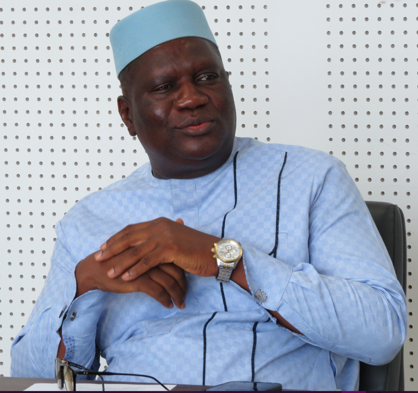By Marcus Bangura
Corruption has long been a pervasive issue in Sierra Leone, deeply ingrained in both public and private sectors, undermining the nation’s progress and development. Despite the efforts of various institutions to combat this chronic issue, corruption continues to take a heavy toll on the country. From financial mismanagement and the misallocation of resources to the erosion of public trust, the effects of corruption are far-reaching, harming every aspect of life in Sierra Leone.
The Financial Impact: Losses and Mismanagement
The financial cost of corruption in Sierra Leone is staggering. The Audit Service Sierra Leone (ASSL), tasked with promoting financial transparency and accountability, has consistently revealed troubling figures in its annual audit reports. The 2023 report, for instance, highlighted a shocking NLe 233.78 million (approximately US$10.46 million) in losses across 157 public entities. These losses were attributed to poor financial management, including statutory deductions that were never paid, unauthorized expenditures, ghost workers, weak asset management, and procurement violations. Ministries and Departments alone were responsible for NLe 152.60 million of these losses, an increase of over NLe 43 million compared to the previous year.
Such losses are symptomatic of systemic failures within the government and public institutions. Funds that should be directed toward critical public services like healthcare, education, and infrastructure are instead siphoned off or mismanaged, contributing to Sierra Leone’s underdevelopment. The persistence of these issues year after year suggests that despite the Audit Service’s efforts, accountability remains elusive, and corruption continues to thrive.
A Declining Transparency Index
Sierra Leone’s performance in Transparency International’s Corruption Perceptions Index (CPI) further highlights the persistent corruption challenges. In 2024, Sierra Leone’s score dropped to 33 out of 100, falling two places to 114th out of 180 countries, a regression from the 2023 score of 35. This decline signals that, despite some efforts to tackle corruption, the situation has worsened in recent years. The country’s continued struggle with corruption is reflected in the stagnation of reforms, weak enforcement of anti-corruption laws, and a lack of political will to hold officials accountable.
The country’s poor CPI ranking highlights the systemic nature of the issue. Transparency International’s assessment indicates that corruption is not confined to isolated incidents but is embedded in the fabric of governance. The decline in Sierra Leone’s CPI score is a glaring reminder that merely implementing anti-corruption policies is insufficient without the political commitment to enforce them effectively.
The Role of the Audit Service Sierra Leone
The ASSL has played a vital role in uncovering corruption and financial mismanagement in Sierra Leone. The Audit Service’s reports have been instrumental in exposing the alarming rates of corruption in the public sector, with findings consistently showing large-scale financial losses due to improper management of public funds. However, despite these reports shedding light on the depth of corruption, the response has been disappointing. There has been little action to address the findings in a meaningful way, and the political will to act on these revelations has often been lacking.
The lack of accountability for those implicated in corruption scandals has allowed the issue to persist, and the situation seems to worsen with each passing year. The ASSL’s findings have been met with public outrage, but that anger rarely translates into substantial reforms or the prosecution of individuals responsible for the mismanagement of state resources. This inaction not only undermines the integrity of the Audit Service but also fuels public disillusionment with the government’s ability to tackle corruption.
The Social and Political Costs
The social and political consequences of corruption in Sierra Leone are equally devastating. Corruption undermines the rule of law, weakens institutions, and erodes public trust in governance. When public officials are able to siphon off state resources with little to no consequence, it breeds a culture of impunity. Citizens lose faith in the political system and become increasingly disengaged from the democratic process. This apathy weakens the foundations of democracy, leading to lower voter turnout, a lack of civic participation, and a further decline in accountability.
Moreover, the diversion of public funds meant for essential services like healthcare and education directly impacts the lives of ordinary Sierra Leoneans. Basic public services remain underfunded, while the wealth gap continues to grow. Poverty, inequality, and social unrest are exacerbated by the corrupt practices of those in power, making it harder for Sierra Leone to achieve sustainable economic development.
International Perception and Accountability
International assessments of Sierra Leone’s corruption levels, such as those by Transparency International, play a crucial role in shaping the global perception of the country’s governance. The declining CPI score not only reflects poorly on the government’s commitment to tackling corruption but also affects foreign investment and international partnerships. Investors are often wary of entering markets where corruption is rampant, and the lack of transparency in public procurement processes raises concerns about the integrity of contracts and deals.
To improve its global standing and attract investment, Sierra Leone must take meaningful action against corruption, implement effective reforms, and ensure that officials who are found guilty of corruption are held accountable. The country must also strengthen its relationship with international anti-corruption organizations to adopt best practices and share information on how to combat financial crime.


